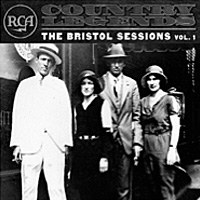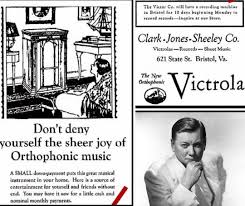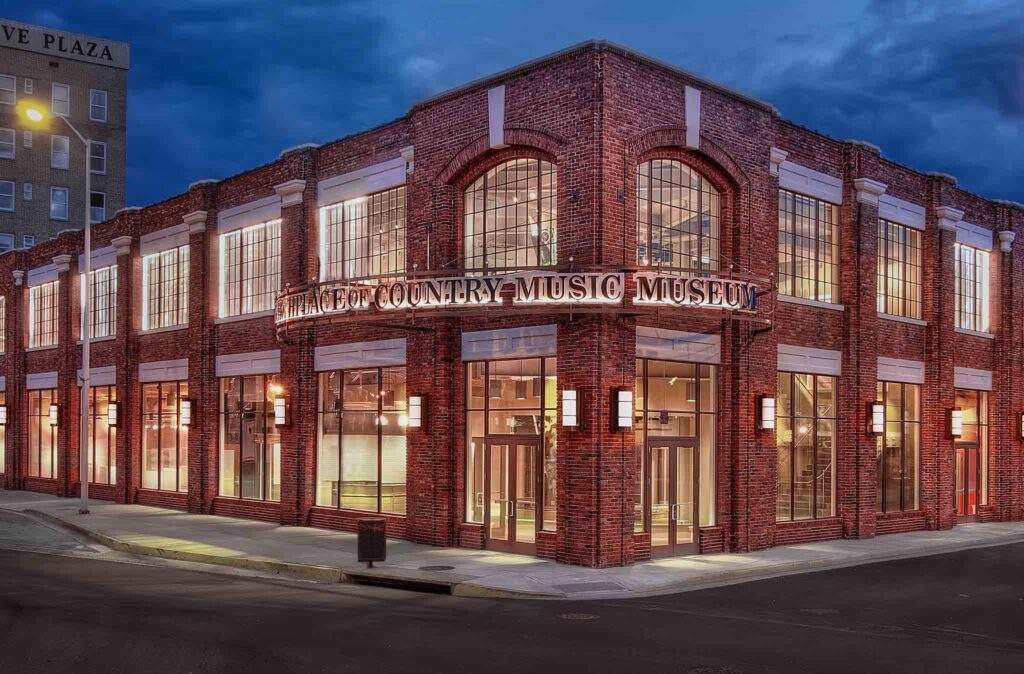 In 1927 Ralph Peer, was a record producer, engineer and talent scout. He worked for multiple companies over his career but in his work with the Victor Talking Machine Company, he set up a temporary music studio on this site in Bristol. Over the next 12 days he recorded 76 songs by 19 artists, including the Stonemans, and the first recordings of Jimmie Rodgers, and the Carter family. In 1998 the United States Congress recognized Bristol as the “Birthplace of Country Music”.
In 1927 Ralph Peer, was a record producer, engineer and talent scout. He worked for multiple companies over his career but in his work with the Victor Talking Machine Company, he set up a temporary music studio on this site in Bristol. Over the next 12 days he recorded 76 songs by 19 artists, including the Stonemans, and the first recordings of Jimmie Rodgers, and the Carter family. In 1998 the United States Congress recognized Bristol as the “Birthplace of Country Music”.
Ralph Peer is credited with what is often called the first country music recording (at that time it was called “hillbilly music”), Fiddlin’ John Carson’s disc “Little Old Log Cabin In The Lane”. That Old Hen Cackled and The Rooster’s Goin’ To Crow”. In August 1927, while talent hunting in the southern states for the Victor Talking Machine Company, he recorded both Jimmie Rodgers and the Carter Family in the same session at a makeshift studio in Bristol, Tennessee, known as the Bristol sessions. These recordings became called by some the “Big Bang” of country music and it launched the country music industry. Rodgers, who later became known as the Father Of Country Music, cut “The Soldier’s Sweetheart” and “Sleep, Baby, Sleep”, while the Carters’ first sides (August 1, 1927) were: “Bury Me under the Weeping Willow”, “Single Girl, Married Girl”, “The Poor Orphan Child”, and “The Storms Are on the Ocean.” In July 1929, he also recorded female country singer Billie Maxwell.
Peer had spent many years working for Columbia Records until 1920 when he was hired as recording director of General Phonograph’s OKeh Records label in New York. In the same year he supervised the recording of Mamie Smith’s “Crazy Blues”, the first blues recording specifically aimed at the African-American “race music” market. It was hugely popular selling over a million copies. In 1924 he supervised the first commercial recording session in New Orleans, Louisiana, recording jazz, blues, and gospel music groups there.

Ralph Peer on one of his Victrola ad’s
In the National Recording Registry, Ted Olson describes “hillbilly music” as “a catch-all term for much of the white folk and popular music composed and performed in the southern United States.” The record industry did not change the name until 1949, writes Encyclopedia Britannica, when companies adopted the term “‘country and western music’… to replace the derogatory label.”
Olson said Bristol Sessions were innovative because it was one of the first times a producer had traveled to a rural area to record the hillbilly music sound. It was the very first time that a producer had ever traveled to Bristol, a small city on the Tennessee-Virginia border that was in the area that many popular hillbilly music singers had come from. He placed a newspaper ad that brought musicians from the hills to his make shift studio hoping for fame and fortune.
“As a producer, [Peer] was one of the first to record artists on-site instead of taking them out of their environments and into an unfamiliar studio,” writes Ashira Morris for PBS. At the same time, writes Olson, with the Bristol sessions he was able to record higher-quality tracks than previous hillbilly music recordings. “ Earlier releases were generally muddy or remote in terms of sound,” he writes–mostly because the microphones used to record it weren’t as good. By bringing state-of-the-art equipment, including high-tech microphones, Peer produced very authentic and high-quality work. Via: https://www.smithsonianmag.com

The Birthplace of Country Museum
